TEXT BY MANEO MOHALE
PHOTOS BY NEO BAEPI
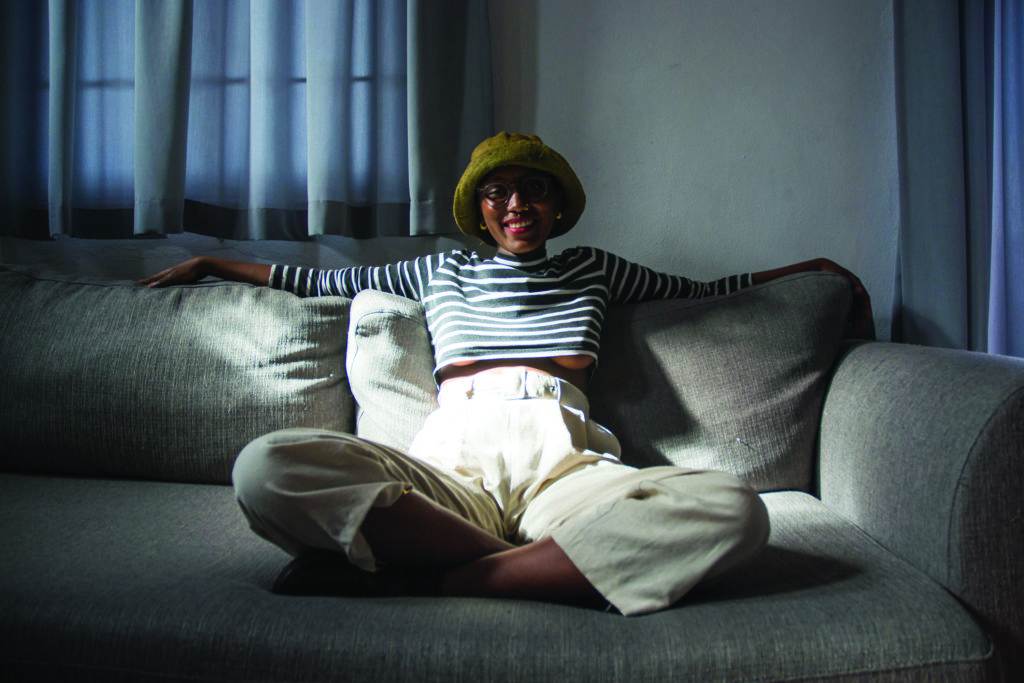
“Joy is good. And joy that need not be gated and walled against the pain of others is surpassing good.”
—SHAILJA PATEL, KENYAN WRITER AND POLITICAL ACTIVIST
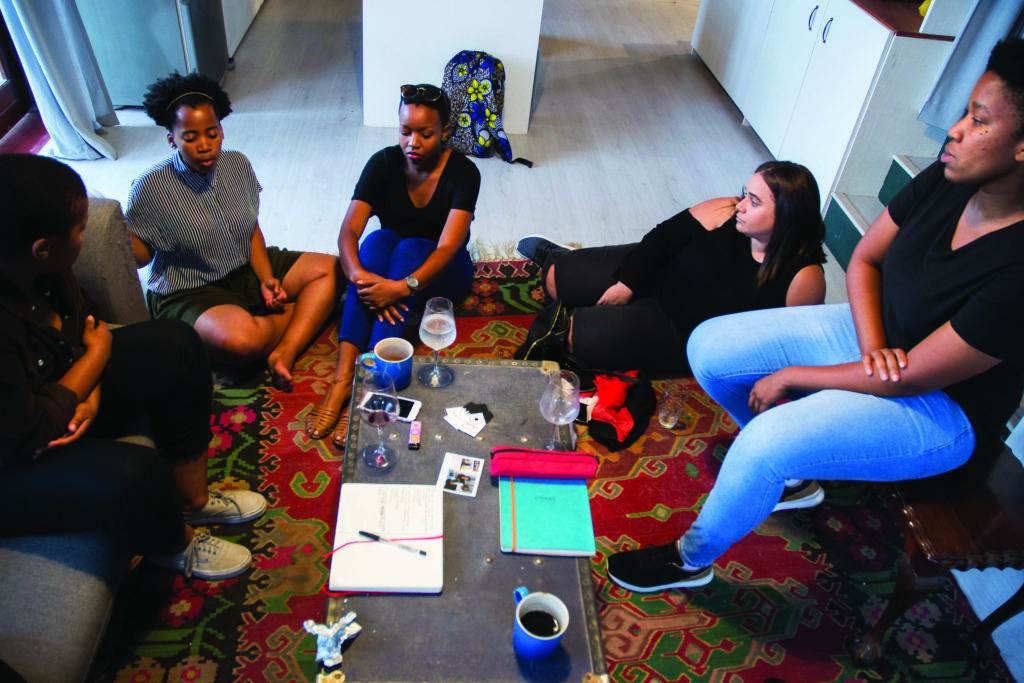
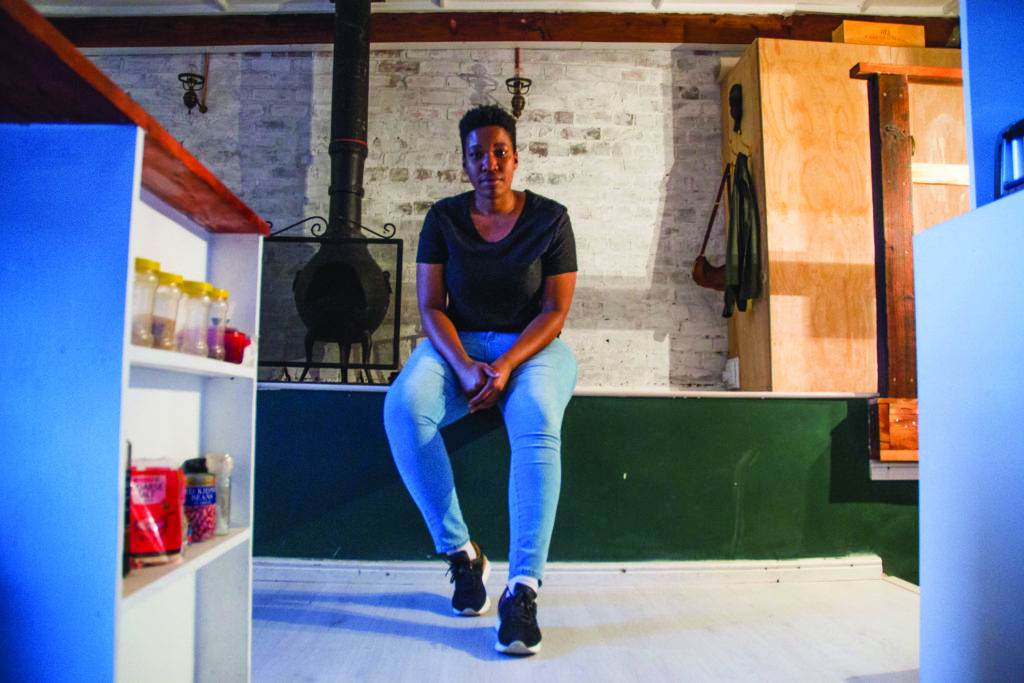
In the first few days of November, I found myself in a crowded living room full of Black feminists. We had all gathered at my shy request in an apartment in Woodstock—a diverse, complicated, and rapidly gentrifying neighborhood in Cape Town—with the sole intention of speaking about joy.
Each face that congregated in the space belonged to someone that I deeply admired.
Some I had come to know through their organizing within and adjacent to powerful political movements such as #RhodesMustFall (an ongoing student movement that seeks to tackle the legacy of racism within South African universities). Others were acquaintances whose work I admired from afar, through online activism and writing. Others I am fortunate to call friends and chosen family.
In my mind, the purpose for our meeting seemed deceptively simple. Why not gather a group of powerful people engaged in various struggles against racism, sexism, transphobia, and queer antagonism to speak about joy?
What followed were profound and difficult conversations about our experiences with joy, our desires for joy, the relationship between joy and identity, and the myriad barriers (both self-imposed and structural) we experience in our pursuit of joy. A common refrain that arose in our chats was: “Joy was never meant for us.”
Thus, our conversations about joy took on a larger significance. In a world increasingly marked by deeply racist narratives that prescribe Black bodies and bodies of color as visible and legible only through the lenses of oppression, violence, and death, the insistence on, pursuit of, and desire for joy becomes an act of vital resistance.
Neo Baepi, the immensely talented Cape Town–based photographer who lends her eye and images to this photo essay, captures the quiet ways that these fierce feminists resist and exist in a world with little space for their fullness and complexity. In describing her intentions with their portraits, she explains, “I’m making the effort to capture us as something other than bodies in constant pain and danger. We live, laugh, fuck, drink, and dance too.”
Kumkani Siwisa
As a masculine of-centre nonconforming queer Black feminist, I have always known joy to be fluid, as fleeting moments and feelings that are coming and going, never static. Joy is the safety and solidarity I find in queer feminist Black spaces, sharing the beauty and pain of being in a default state of resistance. To me, joy is the ability to genuinely celebrate ourselves—the people who’ve been taught we do not deserve it. It is to fall and feel deeply in love with myself and with others, whether or not the world approves.
Joy is reading and writing myself into existence, rejecting the belief that my story is too much: too overwhelming, too messy, too inconvenient. Joy is the tenderness in the embrace of my partner, the sharing of stories, food, and books among friends. Joy is Saturday morning hikes, Sunday afternoon beach dates alone, Tuesday writing time with all of my selves—joy is deliberately and intentionally seeking ways to celebrate myself and those around me. When I begin every thought, action, or feeling from a place of love and joy, especially in queer Black feminist struggles, it becomes easier to appreciate the tireless efforts of those who’ve organized before me and to recognize and be affirmed by the power of those who organize with and around me.
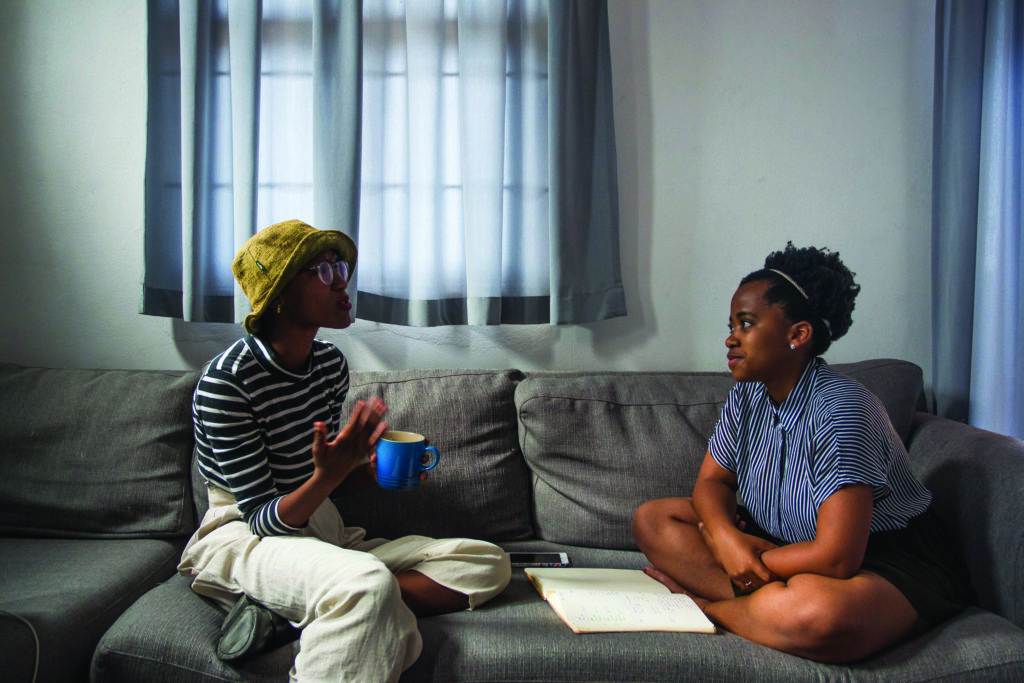
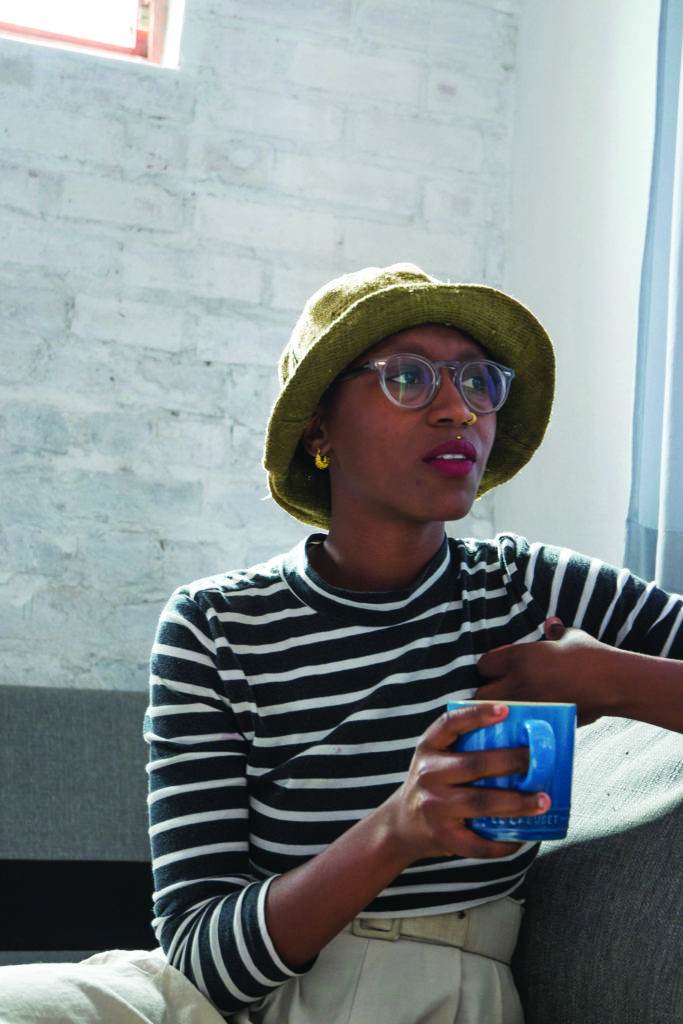
Lindiwe Mngxitama
I am a 23-year-old Black queer femme and a radical Black feminist. The kind of feminism I align myself with is one that allows for the ability to be dynamic and nuanced. So if I want to go be, y’know, sluttaceous on a night and twerk on whiteness and male tears and all of those things, I’m gonna do that.
My feminism arises from a personal point of departure. It comes from the faces I carry on my face, and seeing my mother and my grand mother and my aunt and the collective communities of Black women around me and how there’s been so much we’ve been denied. My feminism is about reclaiming that. It’s about saying, “Yes, I don’t always have to be strong; I can be a mess. I can be loud. I can be tender. I suffer from depression and anxiety. I can be selfish. I can be hurtful and vicious, but I am also a vessel of love and joy.”
I feel [joy] by virtue of me choosing myself. Because we’ve never been given the space to choose ourselves—if we do, we’re considered selfish. As Black womxn, you must choose everyone else before you choose yourself. So, as a Black womxn, choosing yourself is inherently a political act, in whatever manifestation that may be—as a queer Black womxn, as a cis-het Black woman, a trans Black womxn. . . . It may not be an overtly political act, but it is inherently tied to radical love. Once we learn to love and choose ourselves, we can really learn to build toward each other and choose each other and ultimately, fuck shit up.
M. Kimani
I’m queer. Queer sometimes? Sometimes I venture into calling myself lesbian. I’m 80% queer, and lesbian the rest of the time because I enjoy the jokes. The jokes are funny. I enjoy lesbian jokes.
For me, where I find a lot of joy in feminism is in how dynamic it is. I don’t want a feminism that is the same from the start point to the end point. I think there are principles that are consistent in feminism—especially ones of compassion and loving one another. My own feminism is shifting right now, from a space of “I hate the world and what it looks like, so much is wrong with it” to a love-based feminism where that love manifests in the creation of good or better spaces.
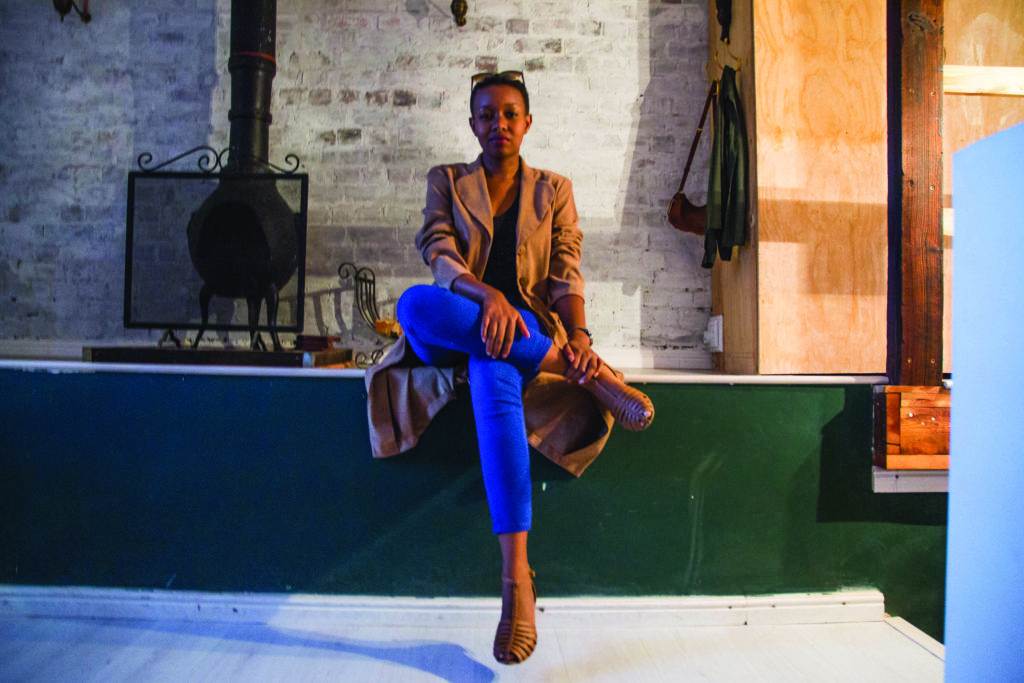
Alex Hotz
I’m in the midst of figuring everything out. I’m in a whirlwind of figuring out what, who, when, why. It feels like it’s been a year of crisis. Both internal and external. 2016 can actually fucking miss me.
Something I’ve had to grapple with this year, specifically in my feminism, is being consistent in my politics. Specifically, to other feminists—whether I’ve let them down in particular spaces where I needed to be more consistent and be more of what I say I am. And that’s something that I think has been very difficult. That’s also where a lot of my hurt and pain stemmed from in movement spaces. Finding my way back to joy looks a lot like undoing that hurt.
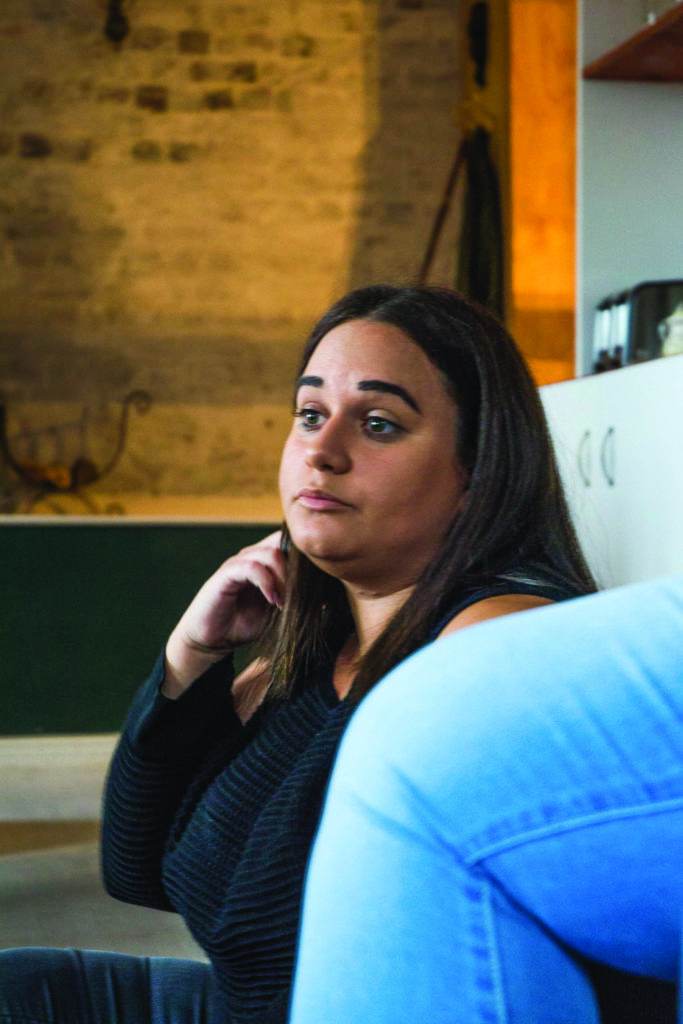
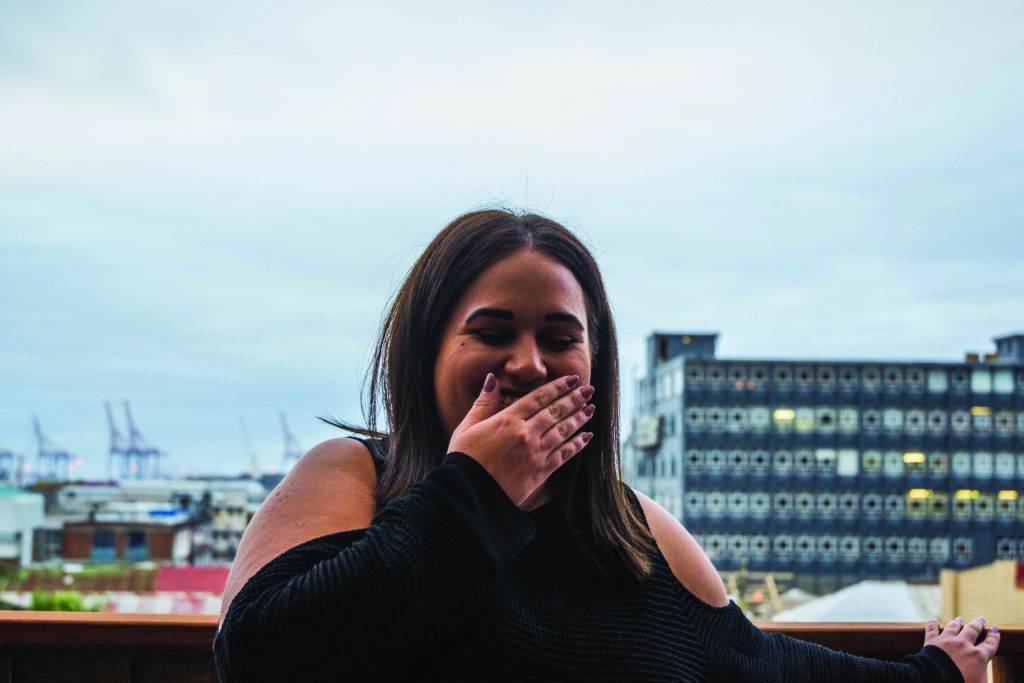
Nala Xaba
I am a black women, a black feminist who, honestly, still feels too new in this world to identify beyond that. Whether it is the age I am at, or the age we are in—it seems to be one that demands a naming/owning/deliberately presenting with confidence I haven’t been able to grasp. I’m (un)learning still.
In this body, a politicized body, my smile is politicized too. Joy is the logic of feminist fellowship. The sounds of my three mothers’ laughter over Christmas lunch ingredients or of the squad over Stellenbosch wine (not meant for our) tasting have inscribed in me the resilient beauty of black women. To revel in our light is to look at the things that would cause us pain and say, “Hey, whiteness! Hey, cis hetero patriarchy! What’s good, capitalism! Nawe (you too), ableism! Look at this—you can’t keep me down!” I think the most beautiful thing, though, about our joy, is that it does all of this inadvertently. Our joy is all ours. It does not form itself for “them,” not even to reject them. Our joy is all ours.
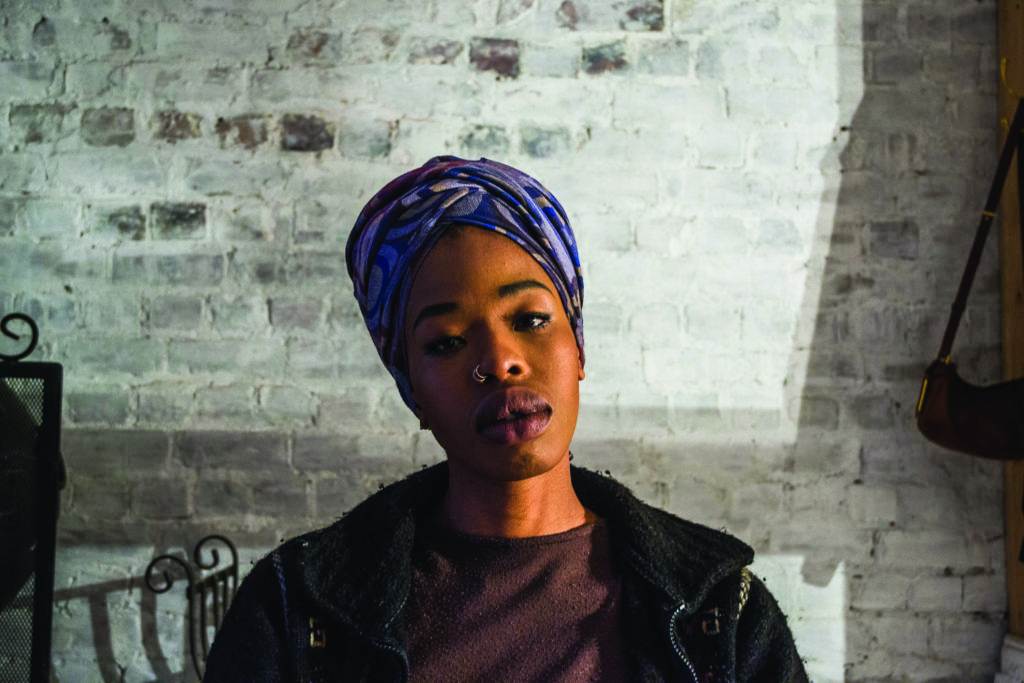
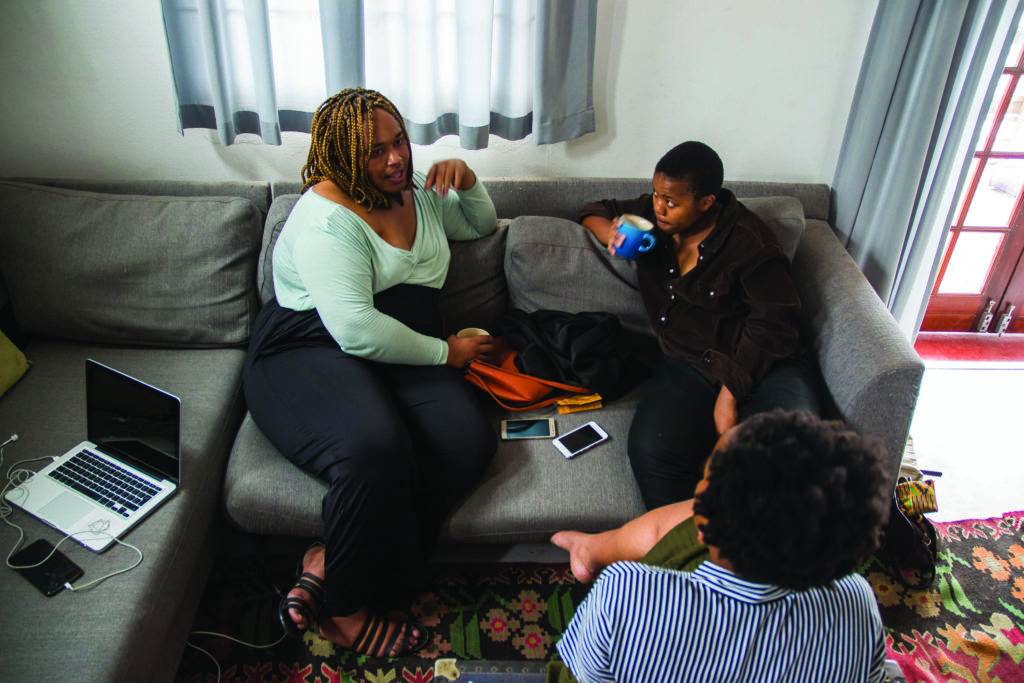
Tabisa Raziya
About a week ago I was very clear about being a queer Black womxn, but I think now I want to say lesbian. Because people don’t take me seriously when I say “queer.” They think I’m confused, but I’m not confused. I do what I want to do when I want to do it. But also, I don’t completely understand the term lesbian as a definition, so I’m trying to make it mine. I don’t think I can hold queer. I think it’s a bit too soft for me. It can mislead you into thinking that I’m open. I mean, I’m fluid, but only until a certain limit, until a certain metre. And now I’m like, actually, I’m a Black lesbian. Because I was so young when I was introduced into that space.
I definitely believe that individuals create their own joy. I love spending time alone. I’ve finally learned the lesson that I don’t have to put myself in harm’s way for anyone. I decided that my life doesn’t have to be this miserable experience. I often was put into a space where people wanted me to be this person, this perfect feminist. My favorite word right now is problematic. I firmly believe my joy is not problematic. In deciding not to try so hard, and being a Self-Care Toss Queen, I’ve never felt so powerful.
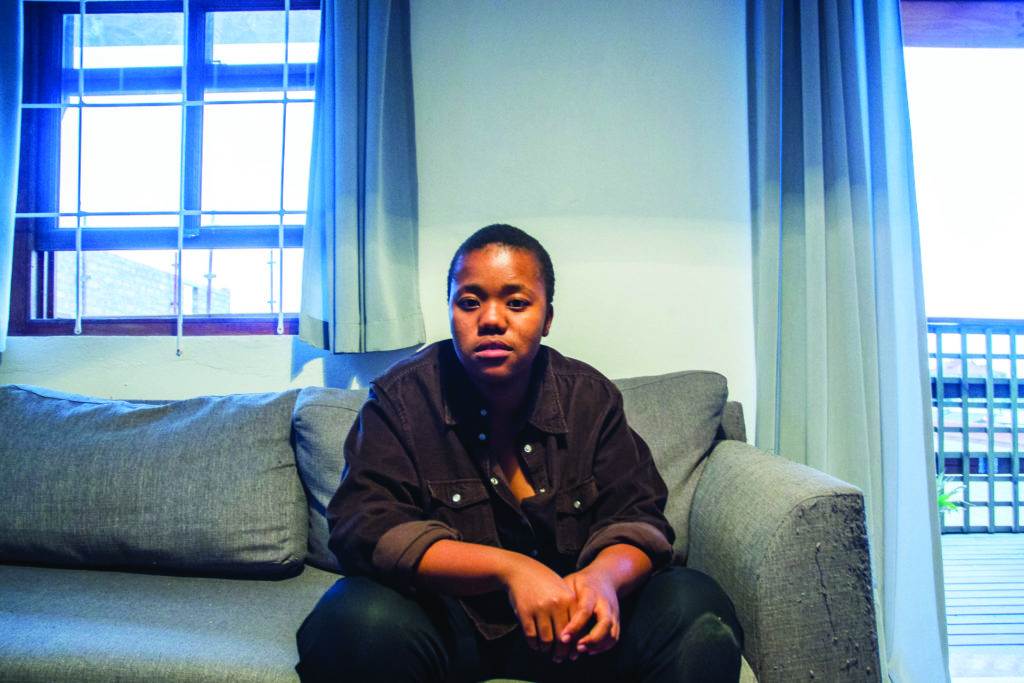
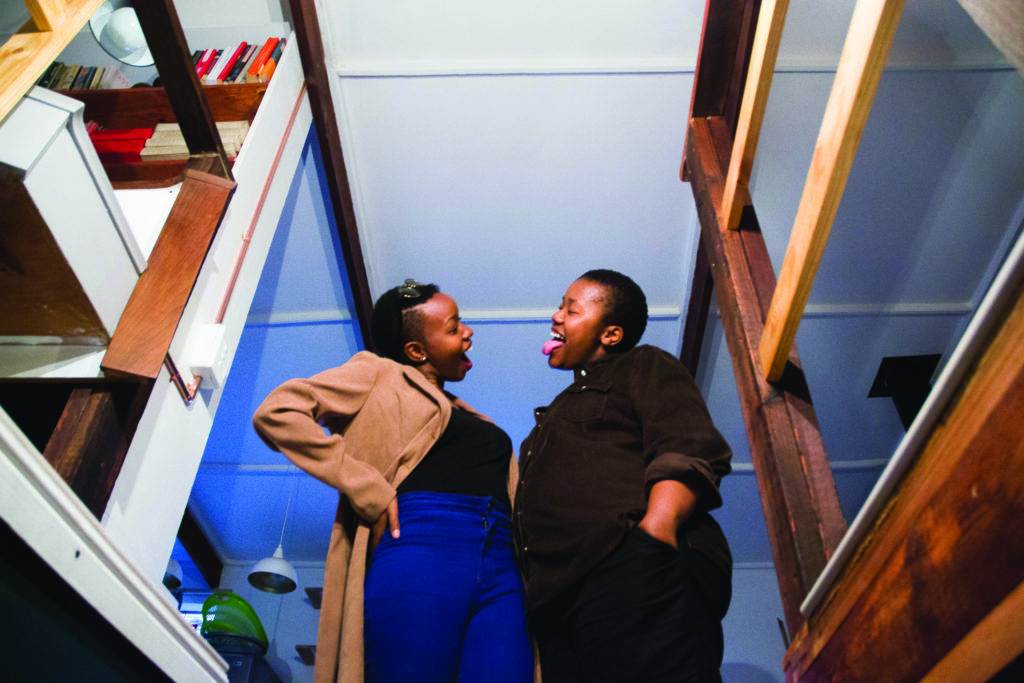
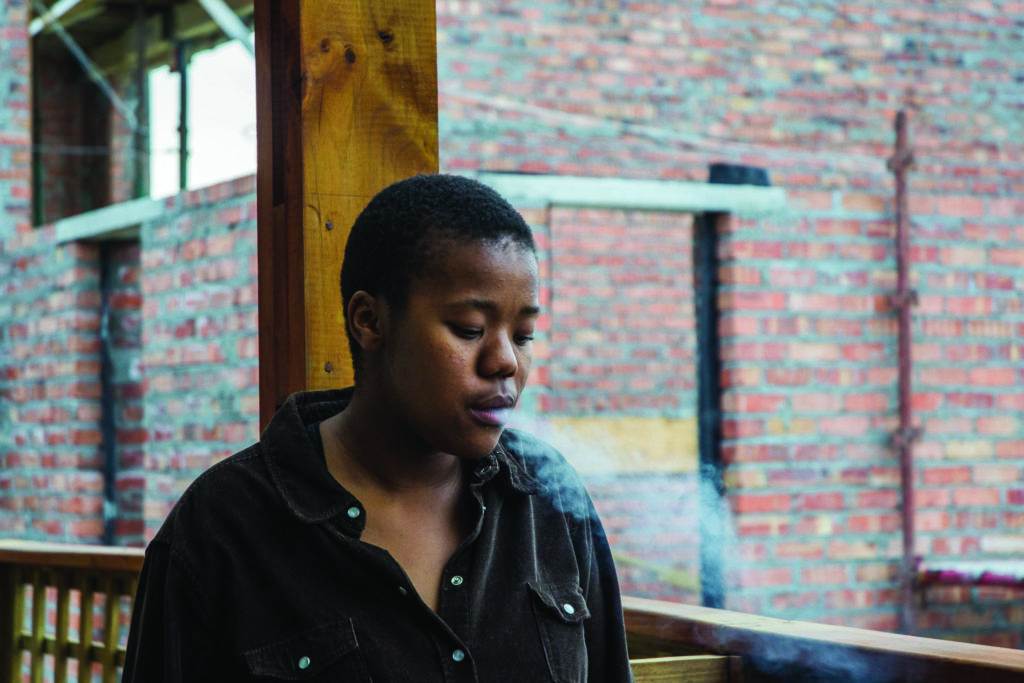
Thato Pule
I’m a Black queer trans womxn. For me, including the word queer speaks back to how the conversation on transness is largely Westernized. There’s a need for us, as Black queer trans people on the continent, to give content to what it means for us to be gender diverse. And that’s the kind of journey that I’m exploring. Also, my inclusion of queerness is also speaking back to the sexualities that are imposed on me.
So for example, as a trans womxn, for me to affirm myself as a woman I had to be attracted to a certain gender. It’s as if I killed my inner queer child growing up, which I think we all do, and I was successful at it because it wasn’t just about assimilating but also about affirming myself in that space, in a cis-het framework of identity. So right now, that’s the work that I’m undoing: finding out my own relationship to identity. Like, how do I express myself? What am I influenced by? Who am I really attracted to? Because within this framework only certain bodies are deemed desirable.
The work of joy and community is so difficult because we’re often in a cycle of continuous critique. That’s why personally I couldn’t be in the movement space anymore. Critique, with few people coming forward with solutions to the pain and the hurt that I was experiencing. I felt like I was a dumping ground. I was already a landfill on my own; I had my own issues going into spaces.
I’m not always sure the activist space is a space that can do the transformative work of real accountability and tenderness and joy. Lately, the space in which I’ve felt the most joy is my personal space. I love being alone now.
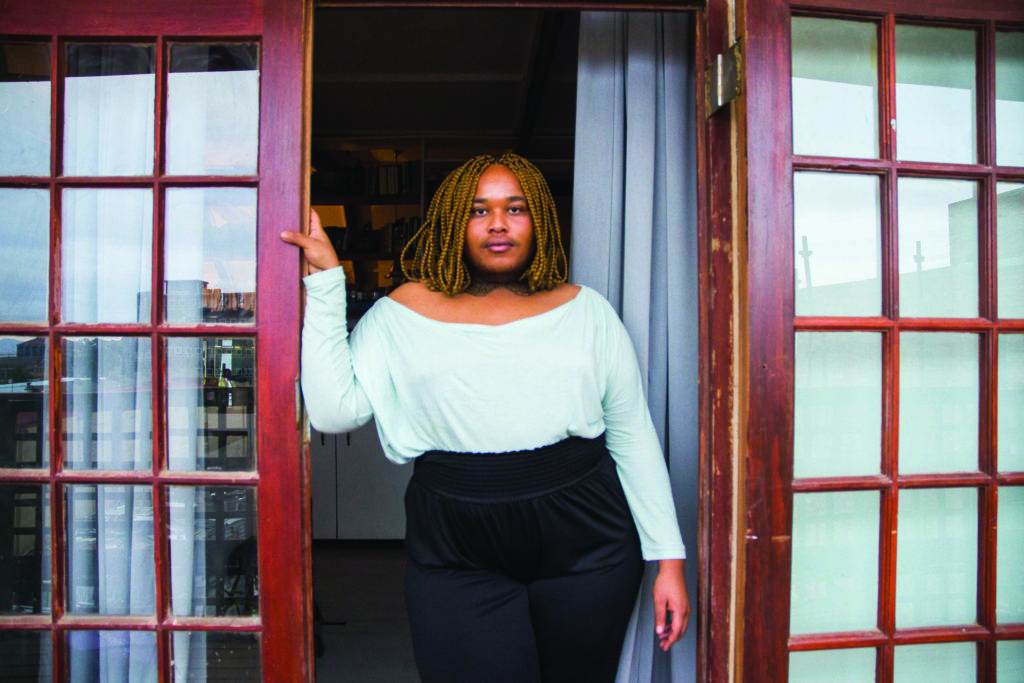
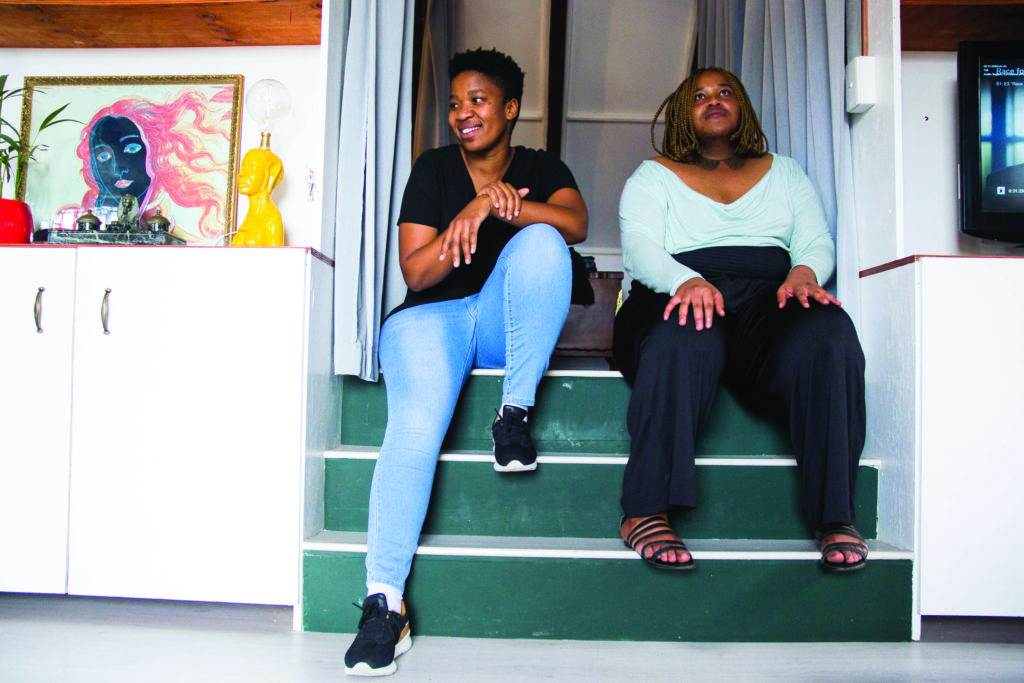
Ntebaleng Morake
I am a queer Black womxn and usually, when I say I’m queer, people still want to know what I mean and them knowing is them putting a name to who I date. It’s strange because sometimes I don’t know, and it’s okay. My relationship with the word queer is very intimate because I know that at least, in some space, I too have an opportunity to have joy call me a friend.
Joy is definitely political. We are taught that you need to be living on the floor. You need to be surviving. But finding joy is so political in that context. Joy, pleasure, everything—because when those things were created, they weren’t meant for us. They weren’t meant for bodies like ours. And when we find joy and feel it, we say to the system, “Listen, you ain’t shit.”
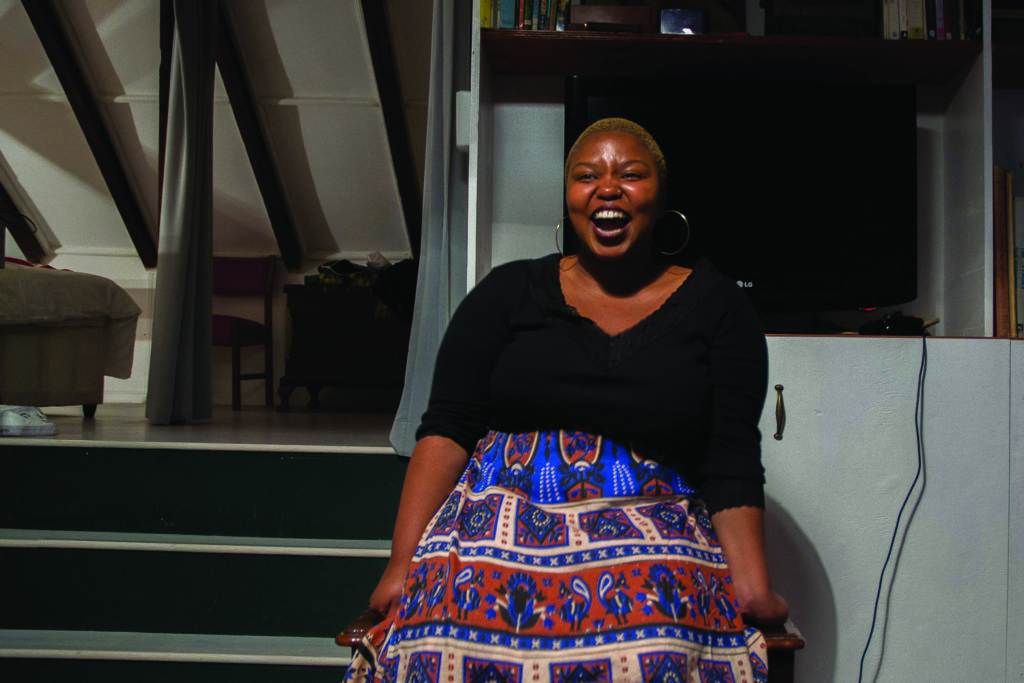
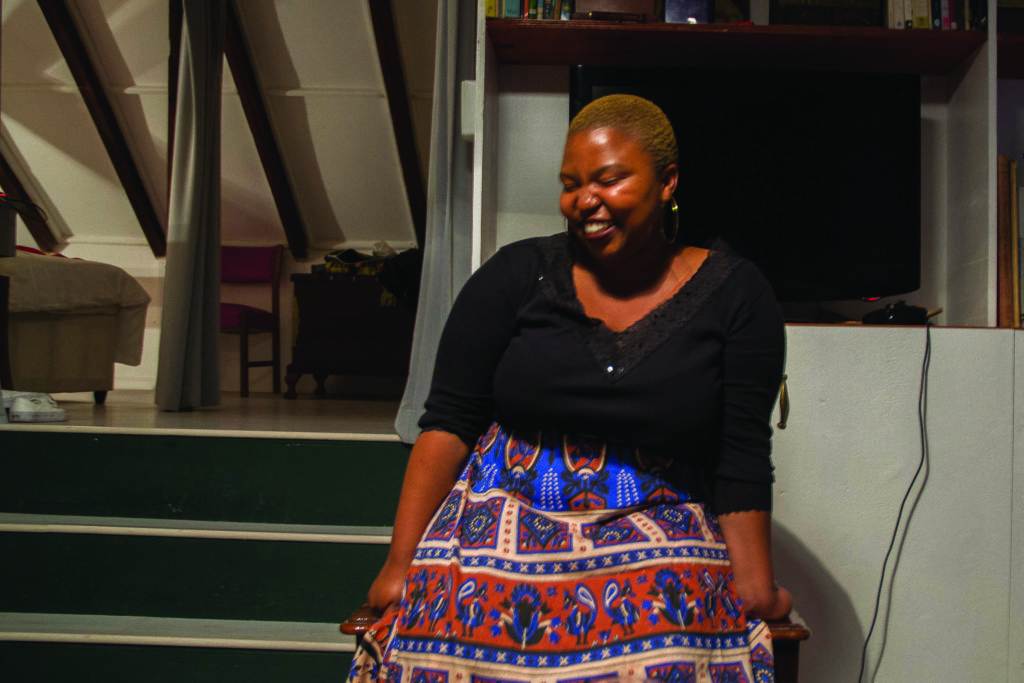
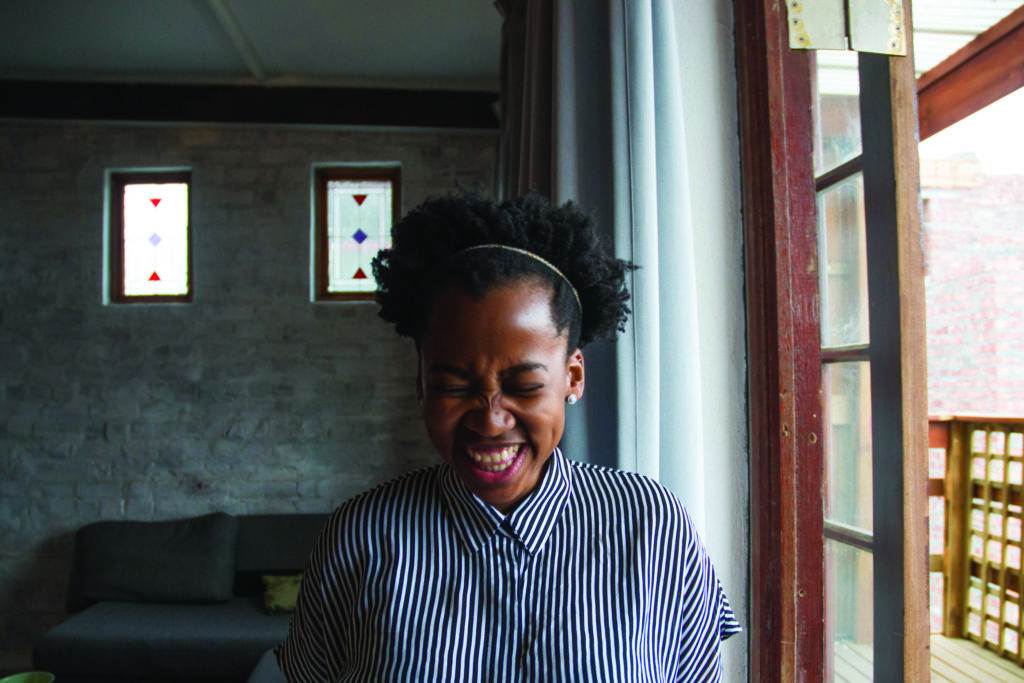
Maneo Mohale is a writer and editor based in Johannesburg, South Africa. MMohale.journoportfolio.com
Neo Baepi is a photographer based in Cape Town, South Africa. NeoBaepi.tumblr.com This piece was previously published on Bitch Media.